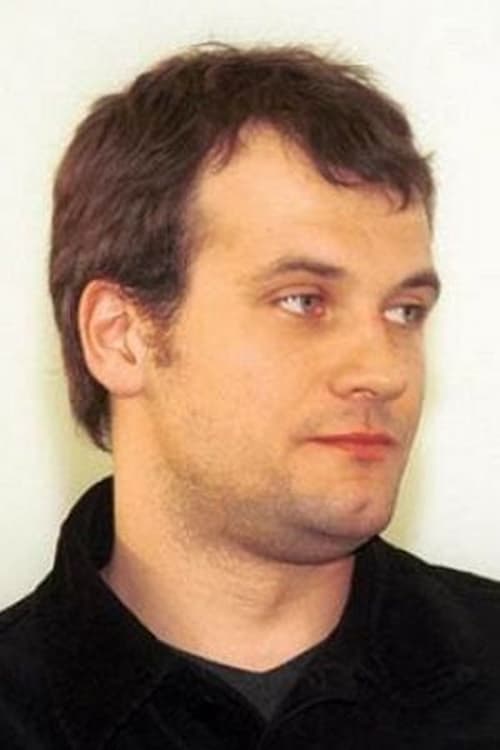Andris Keišs
Birth : 1974-11-26, Latvia
History
Andris Keišs (born 26 November 1974) is a Latvian actor. In the theatre, he has appeared in several plays of Alvis Hermanis and Māra Ķimele. He has also taken part in several films.
In 2005 he received the Union of Latvian Theatre Workers best actor award and has won the Lielais Kristaps award four times (2000, 2012, 2015 and 2016), more than any other actor.

Looking for solutions of an efficient management and creation significant ideas to flourish Latvian culture and education, leaders of the Riga Latvian Society decide to hold the 1st Latvian Singing Festival back in 1873. At the beginning there are only four of them, very soon others – Latvians, Baltic Germans and Russians get involved, both influential persons of the society, countless volunteers from Riga, Livonia and Courland governorates. Also twenty-year-old Anna, whose desire to sing is stronger, despite the obstacles she has like any woman in that period of history, finds a way to join. By singing she finds self-confidence, power, joy of life and sense of unity, flourishing together with the Latvian nation, becoming a symbol of woman’s freedom.


Martin has fulfilled the European dream: he has a beautiful spouse, a nice house and a well-set business. When he turns 40, he starts to ask: is this all there is, and what’s next? An existential comedy/drama about success, sense of freedom and the meaning of life.

Andris Keišs
The middle aged rock enthusiast Raimonds has a dream to become a guitar player for a legendary rock and roll band. He attempts to achieve this goal by making a music video for them. However, drama starts, when a young film student, Rūta, gets involved.

Agate – the older and well-off partner of Matiss and the mother of ten-year-old Paula dies unexpectedly. It becomes a devastating blow for Paula and a grand possibility for Matiss, a charming novice bailiff assistant and a cheating boyfriend, to “upgrade” his social status with Agates splendid house. Matiss and Paula are stuck together in order to find the only relative left – the missing brother of Agate. This journey leaves irreversible footprints on both of them.

Pranas Mickevicius
It's the summer of 1990. The Soviet Union is teetering on the verge of collapse, while the little Baltic nations struggle to take back their lost independence. The Soviet Union's basketball championship is set to begin on the backdrop of a deeply divided society. The Estonian team Kalev faces a momentous decision. With Estonian independence seemingly within reach, a rising tide of public opinion opposes the Estonian national team's participation in the USSR's championship. That would contradict the people's aspirations for liberation. As professional athletes, the team makes the unpopular choice. The championship games start.

Writer
An investigative journalist decides to take down an esoteric organization based around the implementation of structured water.

Aldis Raudisko
An investigative journalist decides to take down an esoteric organization based around the implementation of structured water.

(voice)
While the parent bears are gathering reserves for the winter, the cubs are having fun with a ball of wool … A story told to the tune of a Latvian lullaby, “Hush Hush Little Bear” (‘Aijā, žūžū, lāča bērni’).

It’s November and “the planets realigned a week ago,” says a police inspector in complete astrological earnestness. A desperate woman has turned to the police asking for help to find her daughter, Anna. She is 21 years old, is getting good grades at the Krasnoyarsk State Pedagogical University and has been missing for three days. On the same day, a man arrives at the police station because he has found a phone in the forest while walking his dog. It turns out that the smartphone with the Instagram account “Muha_v_komnate” belongs to the missing girl. The stories that Anna’s family members, friends and those close to her tell clash, leading the chief investigator to question whether anyone ever really knew the girl.

Gvido
A runaway bride, a young peasant, mysterious illusionists and a manic investigator become entwined in a murderous affair at a Baltic German baron's manor.

Himself
Raimonds Pauls is almost 85 years old, rehearses almost every day and performs at least once a week. What drives him? Not only he is the most popular composer in Latvia: his songs are sung all over the world. "Dāvāja Māriņa" is so popular in Japan that Paul received the Japanese Order of the Rising Sun. In concerts, he collaborates with world stars of Latvian origin - soprano Elīna Garanča, organist Iveta Apkalna, conductor Mariss Jansons. The Latvian Television film crew follows him during the pandemic, realizing that the restrictions and threats of Covid-19 hardly stop the Maestro in the course of his eternal engine. How does he cope with the challenges that time imposes on a person's physical form and the loneliness when most friends have passed away? What is the source of his inexhaustible lifestyle and creative spirit?

Writer
In one long take lasting nearly an hour and a half, three well-known Latvian actors re-stage scenes from renowned Soviet Latvian movies made under the Riga Film Studio. As they progress from film to film, their re-enactments lead them to discover the undeniably funny personalities and unbelievable circumstances under which these films were made. Blending documentary, theatre and fiction film, this is a comedy about the cinema and the actor, and a heartfelt homage to the Riga Film Studio.

Andris
In one long take lasting nearly an hour and a half, three well-known Latvian actors re-stage scenes from renowned Soviet Latvian movies made under the Riga Film Studio. As they progress from film to film, their re-enactments lead them to discover the undeniably funny personalities and unbelievable circumstances under which these films were made. Blending documentary, theatre and fiction film, this is a comedy about the cinema and the actor, and a heartfelt homage to the Riga Film Studio.

A bureaucrat who has just declared himself as a new political force has disappeared… in a canteen; police are investigating. Combining the absurd and black humour, a harsh and ironic reflection on civil servants, cops, and contemporary art.

Masha is a young girl from the suburbs from an extremely poor family. She lives in her reality, where she cares for her grandmother and her younger brother, and dreams of her own family and a husband; she badly longs for warmth, love and care. She knows nothing about her serious illness. Her life abruptly changes after a meeting with Matvei Sergeevich, a cardiologist who saves her life.

Ralfs Dambergs
Under-appreciated by his wife, a charismatic music producer forces his wife, his teenage daughter and his lover to live together as a family, under one roof.
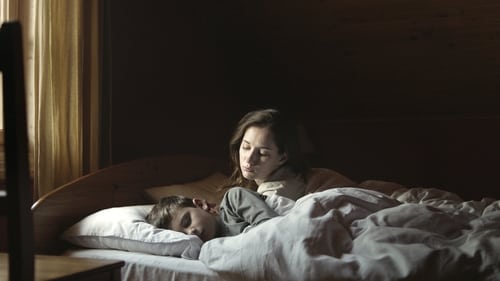
Carl
While working abroad, young au pair Mia unwittingly surrenders her reason, her heart and her dreams to a radical family community.

Sporta skolotājs
Film takes us deep inside the world of Latvian teenagers in 90s: combining the intimate diary of a teenager Jānis trying to find himself by joining a subculture, as well as a skillful, detailed and almost documentary-like depiction of the beginnings of the second independence of Latvia. “Jelgava ’94” is a portrait of a generation in the 1990s who are searching for their own identity and are fans of alternative culture. This is a touching story about us as youngsters, when everybody is against the whole world and tries not to become “one of them”. But can one keep the promise? The story is based on the best seller by Jānis Joņevs set in the 1994 in the Latvian city of Jelgava.

Boss (voice)
Summer adventure story about two kids who spend summer in city suburb, where together with talking dogs they rescue the romantic wooden-house neighborhood from reconstruction.
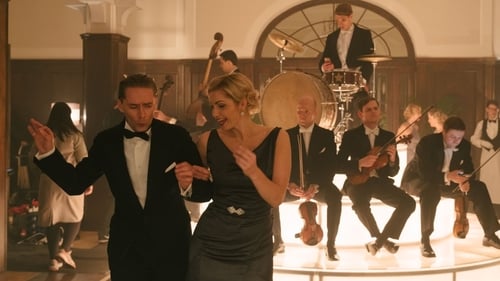
Salutaurs
Riga in the 30s. Wild bohemian lifestyle is the name of the game for every artist worth his salt. A young man from the countryside, poor but ambitious, arrives in the capital, where he hopes to make his mark in the artistic circles. What follows is a string of events, fraught with confusion and misunderstanding, hilarious and heart-warming at the same time.

Ulups
Northern Europe. 13th century. Last pagan settlement near the Baltic Sea. The evil and cynical warrior crusader Max von Buxhoveden is trying to destroy the pagan beliefs of the people by spreading lies and fostering dissent. Old king of the last free pagan lands is on his deathbed and without an heir to take his place. Max wants to take over the throne and reign over old king’s tribe. Unexpectedly, with his dying breath the King passes on his ring to his nephew Namejs. The youngster, who grew up amongst pagan priests and studied ancient wisdoms, now has to defend his people. Will he be able to unravel the secret of the Ring and gain its power?
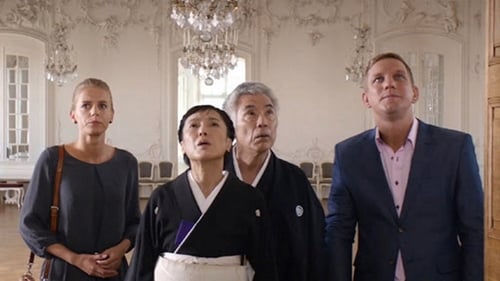
“Magic Kimono” tells the story of middle-aged Japanese woman Keiko, who has been living in a shell for decades due to a family tragedy in Kobe. The modest act of eating and the sensations it gives us provided Keiko a lifeline to survive. Unwillingly, she joins a group of Japanese women traveling to Northern Europe to participate in a kimono show in the fairytale-like art nouveau world of Riga. During her performance, Keiko suddenly comes face to face with her husband, who disappeared twenty years ago and now wants to read-dress their relationship and who Keiko has become.

Anton
Zhenya and Boris are going through a vicious divorce marked by resentment, frustration and recriminations. Already embarking on new lives, each with a new partner, they are impatient to start again, to turn the page – even if it means threatening to abandon their 12-year-old son Alyosha. Until, after witnessing one of their fights, Alyosha disappears...

Dr. Kaufmann
Elsa falls in love with a quadriplegic genius, her patient Nicola, whose mansion hides a secret – Nicola is obsessed with the creation of an artificial intellect. His creation, named Anna, stops at nothing to keep her master just for herself.

Based on a Soviet propaganda story about Young Pioneer (the Soviet equivalent of a Boy Scout) Morozov, who denounced his father to Stalin’s secret police and was in turn killed by his family. His life exemplified the duty of all good Soviet citizens to become informers, at any expense. In our film, 75 years later, we call him little Janis. He is a Pioneer who lives on the Soviet collective farm “Dawn”. His father is an enemy of the farm (and the Soviet system) and plots against it. Little Janis betrays his father; his father takes revenge upon his son. Who then in this old Soviet tale is good and who is bad? This film reveals that a distorted brain is always dangerous. Even today.

Leons
A father who has just been released from prison strives to reconnect with his son. Good intentions are hindered by unexpected obstacles. An unforgettable day spent by the two together might turn into the very last day for one of them.

This creative documentary tells the story of women in art – what she has to sacrifice in her personal life and what choices have to be made in order to gain success in her career. The film explores life of artist, by following theatre director’s Mara Kimele's fighting relationships with her despotic grandmother Anna Lacis (widely known as Asya, whose life is closely tied to the names of Walter Benjamin and Bertolt Brech), cynical son Peteris (who is played by an actor) and work while she stages F. Dostoevsky's “Crime and Punishment”. Every character of film is an act. But does that make them any less real? And what is real in the world of art? Apart from its human character's, the film also has an animated one – the horse, who came into life through the first letter Mara wrote to her grand mother and has been following her ever since.

(voice)
The film, dedicated to the 25th Anniversary of the Popular Front of Latvia, shows the most important turning points in the history of the Latvian National Awakening and Singing Revolution, as well as the rebirth of Latvian national symbols and values. In The Path to Baltic Freedom the authors focus on lesser known pages of history – the influence of perestroika on the early national movements of the 1980s, the role and participation of the Secret Service and the Communist Party in the newly-forming mass movements and their wish to guide or at least control them. The history of the Popular Front is shown not only until their victory in the first free elections in the history of the USSR that resulted in the restoration of independence for the Baltic states; the film also includes the decline of the organization after it had reached the most crucial of its goals.

Five stories and many more lives that are affected, they flow by each other and sometimes intersect. In one way or other we talk about emotional scars that each of us carries around. Events take place in a space of a few days as our heroes try to cope with their past and move on with their lives.

Guido
A film that depicts the mentality of the inhabitants of a small village on the Baltic coast. Three guys are trying to fulfill their life's by drinking beer, killing time and picking up fights with neighboring villagers. The main character Andzha is trying to convince his girlfriend to marry him. The sudden arrival of his elder brother Guido starts a series of events where main roles a played by elevated self-esteem, pride and cravings for love that is stronger than death.

Gutenmorgen is an eccentric family man who tends to see his life in bright colours. In order to improve his failing eyesight, Gutenmorgen decides to open a third eye. Gutenmorgen begins mediating with a self-proclaimed guru and hopes that this unconventional activity will make his family and friends appreciate him just a little bit more.

After recovering from an overseas mission, Krists Lapins moves into a quiet neighbourhood in Riga. His hopes for a new, peaceful life are disrupted when an unexpected visitor arrives one night. Krists soon finds himself in a swirl of events involving a mysterious blonde, a wannabe private detective, a bankrupt millionaire, and a rigorous cop. In this witty portrayal of modern Latvian society the absurd meets the comic and nothing is what it seems.

Historical reenactment of preparation in Nov. 17 and proclamation of independence of Latvia in Nov. 18, 1918 and in epicenter is only taken photograph of this historical moment.

A film about the alarming events of the autumn of 1919, when the fate of modern-day, post WWI Europe was decided in Riga. Three world views clashed on the banks of the Daugava River – a national state for Latvians as proclaimed a year earlier, the Bolshevik revolutionary idea, and the resurrection of a monarchy. The reactionary monarchy interests were represented by German General Graf Rudiger von der Goltz, and Russian Colonel Pavel Bermont.

After the lives of several people are tied into a intriguing knot upon meeting police officer Krasts one hot summer day, they’re all brought together again on a full moon winter night. Intrigue develops among a couple of lovers, Gints and Elga, three adventure-race participants with one woman, Renate, on their team, three generations of a family whose father, Karlis, died in a tragic hunting accident, Karlis’s daughter Aija, his former lover Livija, and a young girl hardened by life, who lives at a Christian home for expectant mothers. A detective twist is added by a bit of poison, which one of them will get.

The time for the annual great graveyard celebration is approaching in a small town. Scientist Laila can’t attend it alone this year. She has to make a choice.
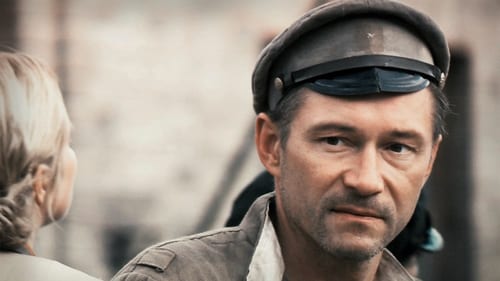
Ernests
The film dramatizes November 11, 1919- a crucial date in the battle for Latvian independence. A year after the end of the official hostilities of WWI, a renegade German general and troops remain outside the Latvian capital. Latvian riflemen, most of them inexperienced volunteers, somehow managed to defeat a larger, better-armed force of German and Russian mercenaries.

Alina's Husband
One night, Matiss Zelcs, an employee of the Latvian national archive in Riga, notices a woman on a bridge. After passing by her without preventing her suicidal fall into the depths, a sensation of failure and guilt changes his life. He cannot forget her. Driven by a feeling of remorse and the fever of illusion, he roams through the city night and day looking for traces of her existence. This journey through the tumult of his conscience leads him deeper into his own loneliness and the depths of his soul, as he gets more and more entangled in the destinies of the woman and of the people who were attached to her. He finds himself confronted with the pain of yearning and guilt, the cruelty of love and desire, and the search for forgiveness, release and salvation.

A tale about a nine-year old boy's relationship with the world around him, shot in one of Latvia's poorest and most beautiful regions - Latgale

Wedding rituals and a love triangle.
